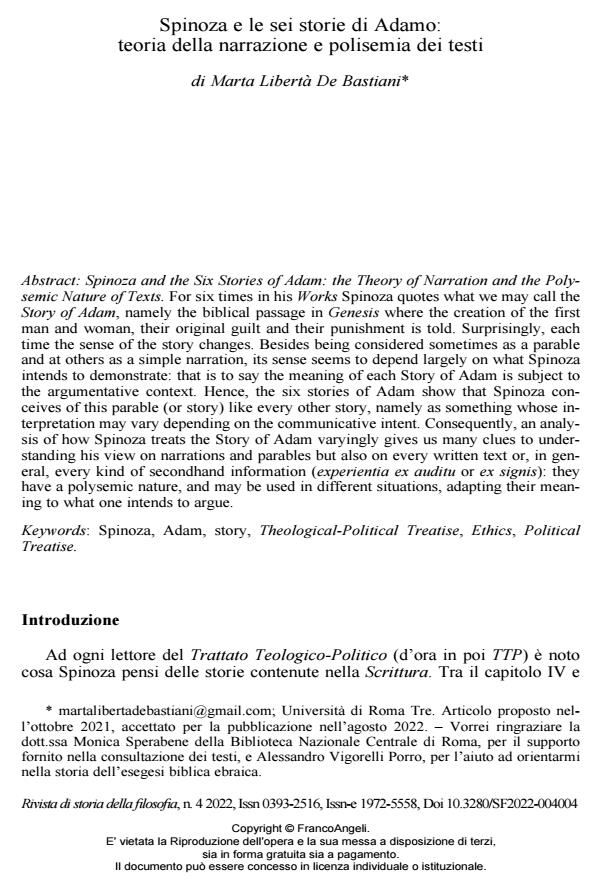Spinoza and the Six Stories of Adam: the Theory of Narration and the Polysemic Nature of Texts.
Journal title RIVISTA DI STORIA DELLA FILOSOFIA
Author/s Marta Libertà De Bastiani
Publishing Year 2023 Issue 2022/4
Language Italian Pages 16 P. 684-699 File size 265 KB
DOI 10.3280/SF2022-004004
DOI is like a bar code for intellectual property: to have more infomation
click here
Below, you can see the article first page
If you want to buy this article in PDF format, you can do it, following the instructions to buy download credits

FrancoAngeli is member of Publishers International Linking Association, Inc (PILA), a not-for-profit association which run the CrossRef service enabling links to and from online scholarly content.
For six times in his Works Spinoza quotes what we may call the Story of Adam, namely the biblical passage in Genesis where the creation of the first man and woman, their original guilt and their punishment is told. Surprisingly, each time the sense of the story changes. Besides being considered sometimes as a parable and at others as a simple narration, its sense seems to depend largely on what Spinoza intends to demonstrate: that is to say the meaning of each Story of Adam is subject to the argumentative context. Hence, the six stories of Adam show that Spinoza conceives of this parable (or story) like every other story, namely as something whose in- terpretation may vary depending on the communicative intent. Consequently, an analysis of how Spinoza treats the Story of Adam varyingly gives us many clues to under- standing his view on narrations and parables but also on every written text or, in general, every kind of secondhand information (experientia ex auditu or ex signis): they have a polysemic nature, and may be used in different situations, adapting their meaning to what one intends to argue.
Keywords: Spinoza, Adam, story, Theological-Political Treatise, Ethics, Political Treatise.
Marta Libertà De Bastiani, Spinoza e le sei storie di Adamo: teoria della narrazione e polisemia dei testi in "RIVISTA DI STORIA DELLA FILOSOFIA" 4/2022, pp 684-699, DOI: 10.3280/SF2022-004004